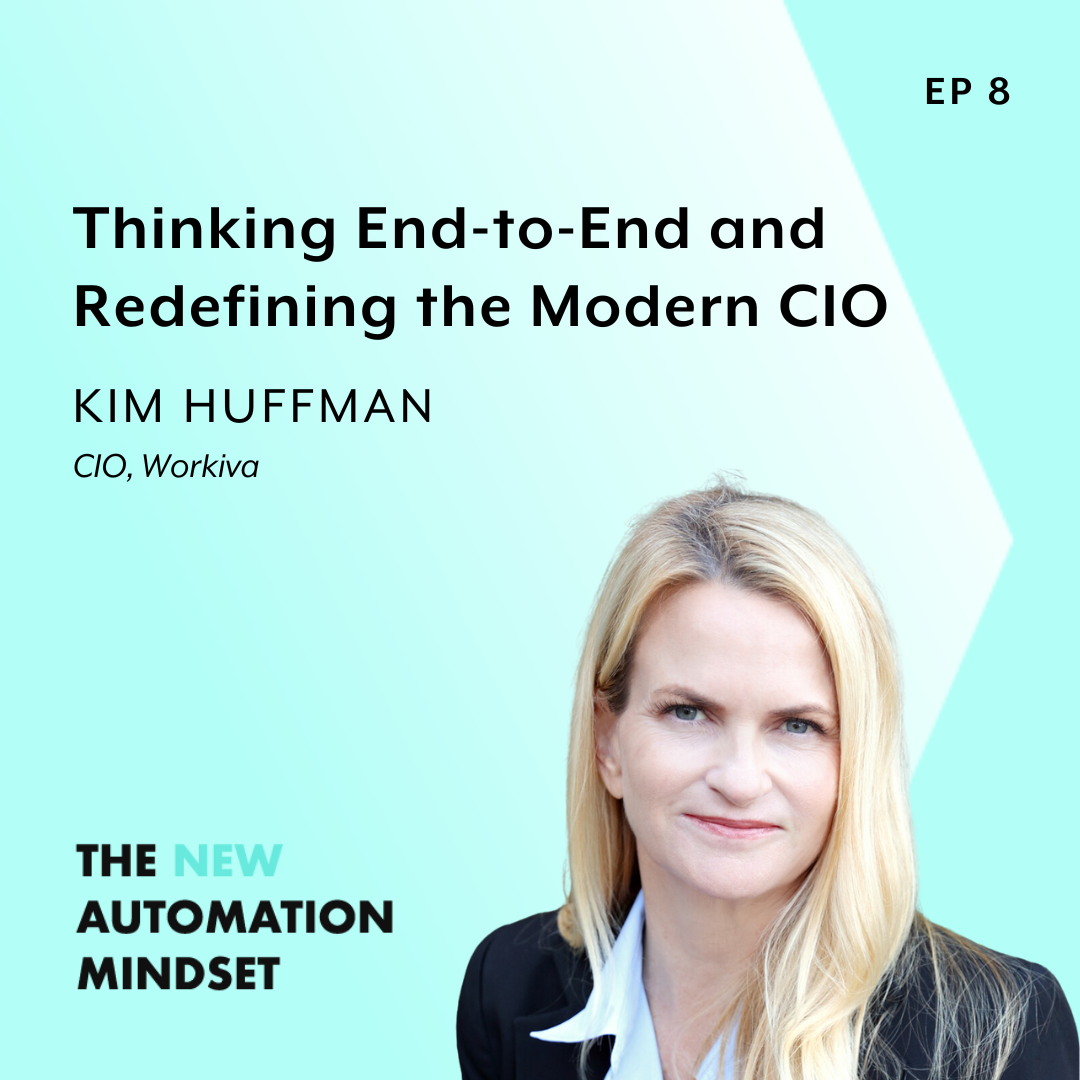
00:00
00:00
1x
- 0.5
- 1
- 1.25
- 1.5
- 1.75
- 2
Thinking End-to-End and Redefining the Modern CIO
9
This is a podcast episode titled, Thinking End-to-End and Redefining the Modern CIO. The summary for this episode is: <h3>Episode Summary</h3><p><br></p><p>In this episode, Markus Zirn and Kim Huffman dive into invigorating topics of the power of automation, the transformative potential of AI, and the most effective strategies for enterprise transformation. Drawing from her diverse background at companies like Elastic, Navan, and Workiva, Kim shares valuable insights, emphasizing the evolving role of the CIO as a 'business technology leader.' The discussion delves into the shift towards understanding business processes, moving away from traditional tech-centric approaches. They also explore the relevance of business architecture, with Kim recommending a gradual, progressive implementation approach.</p><p><br></p><h3>Timestamps</h3><p><br></p><p>*(00:00) Episode Start</p><p><br></p><p>*(02:46) Automation and integration throughout Kim's career</p><p><br></p><p>*(08:22) Transformation of the traditional CIO</p><p><br></p><p>*(13:20) Successes and challenges for the new-age CIO</p><p><br></p><p>*(19:53) Navigating the paradox of increased business systems yet more organizational disconnection</p><p><br></p><p>*(24:26) Significance of understanding end-to-end business processes</p><p><br></p><p>*(28:07) Importance of agility in scaling and streamlining processes</p><p><br></p><p>*(31:07) Business architecture's impact on organizational transformation</p><p><br></p><p>*(35:33) Generative AI's effect on the role of the CIO</p><p><br></p><p>*(39:10) Today's Takeaway</p><h3><br></h3><h3>Episode Key Takeaways</h3><p><br></p><ul><li><strong>CIO as a business technology leader:</strong> The role of technology leaders is evolving. Whether it's the CIO, Chief Digital Officer, or Chief Transformation Officer, they are now orchestrators within an organization. Beyond tech solutions, they delve into understanding business processes to drive transformation. This shift signifies a move from traditional IT roles to becoming pivotal business enablers.</li></ul><p><br></p><ul><li><strong>Business architecture as a strategic tool:</strong> The development of business architecture is key, focusing on core business processes unique to your company. It serves as the roadmap for identifying process gaps, enhancing efficiency, and recognizing untapped opportunities for business value and growth.</li></ul><p><br></p><ul><li><strong>Revolutionizing automation with AI:</strong> Leveraging AI in automation revolutionizes business processes. Beyond task automation, AI provides supportive assistance in decision-making, augmenting human roles for overall efficiency. Leaders should actively seek ways to integrate these technologies for optimal business performance.</li></ul><p><br></p><ul><li><strong>Necessity in understanding of end-to-end processes:</strong> Understanding end-to-end business processes is crucial for tech professionals. It empowers them to identify efficiency improvements, contribute strategically, and drive innovation. This, coupled with the right technology tools, enables organizations to enhance value, customer experiences, and foster a culture of continuous improvement.</li></ul><p><br></p><h3>Top Quote</h3><p><br></p><p>“At the end of the day, if we all step back and we think about the way that our roles have changed as a result of technology. The concept of a technology organization focused only on technology and a business organization focused only on business is a limiting view. And I think because the technology has come to a point is that the CIO of today or the Chief Digital Officer is uniquely positioned to understand enough about technology, that if they have a real passion for the business change and the business process, it actually isn't an IT function, it's a business function. And it's a business function that is enabled and transforming that business through technology.”</p>